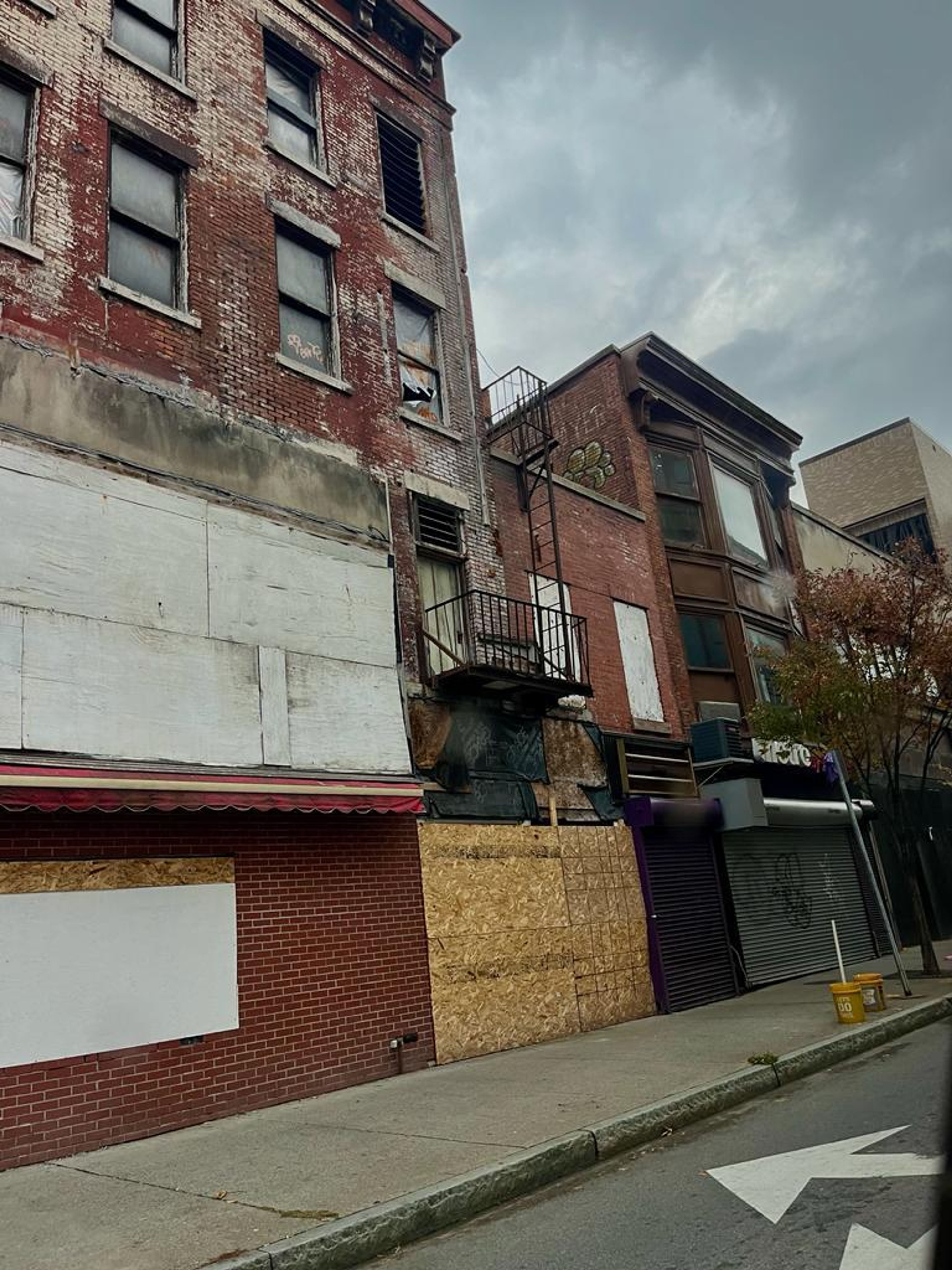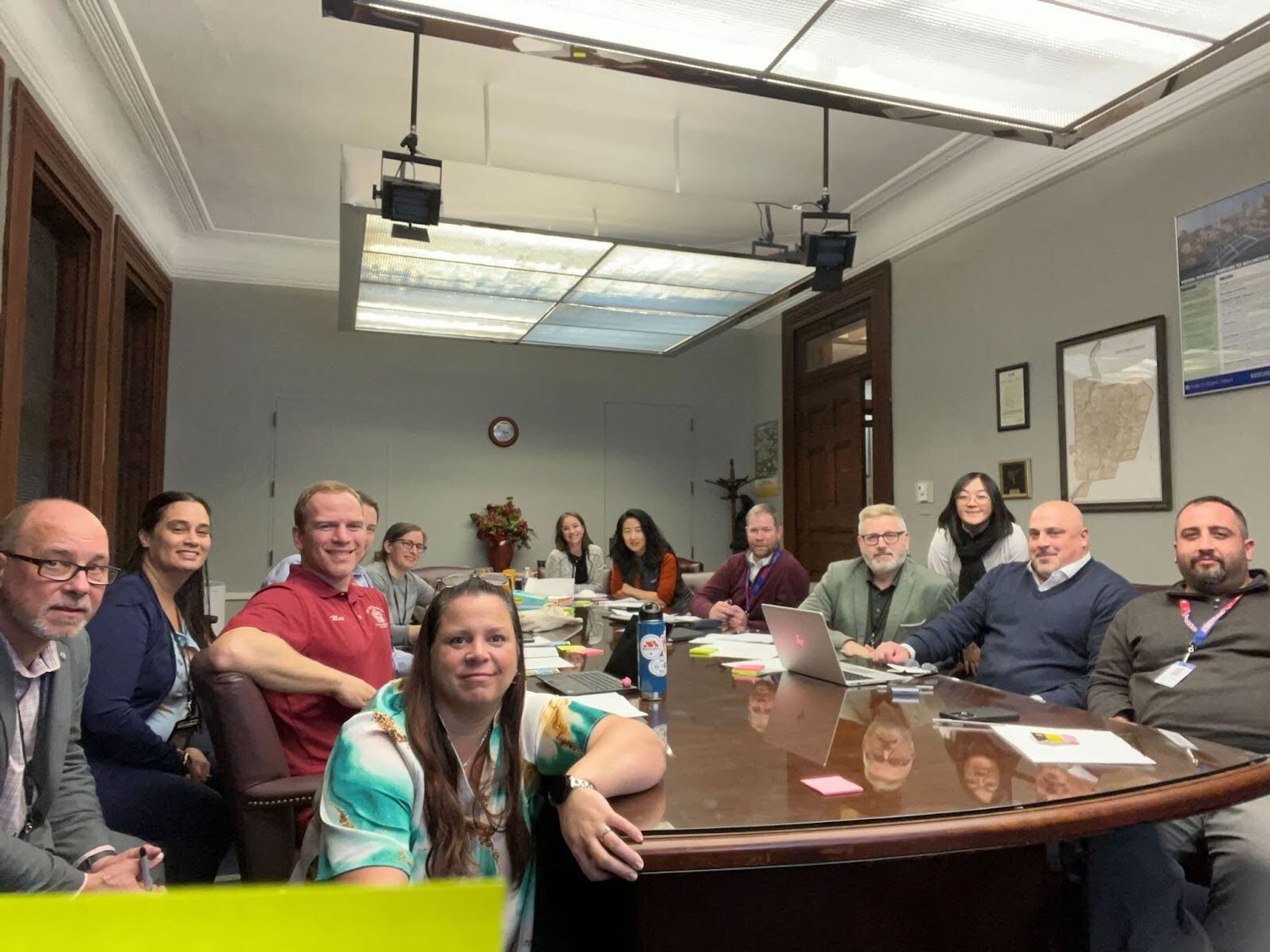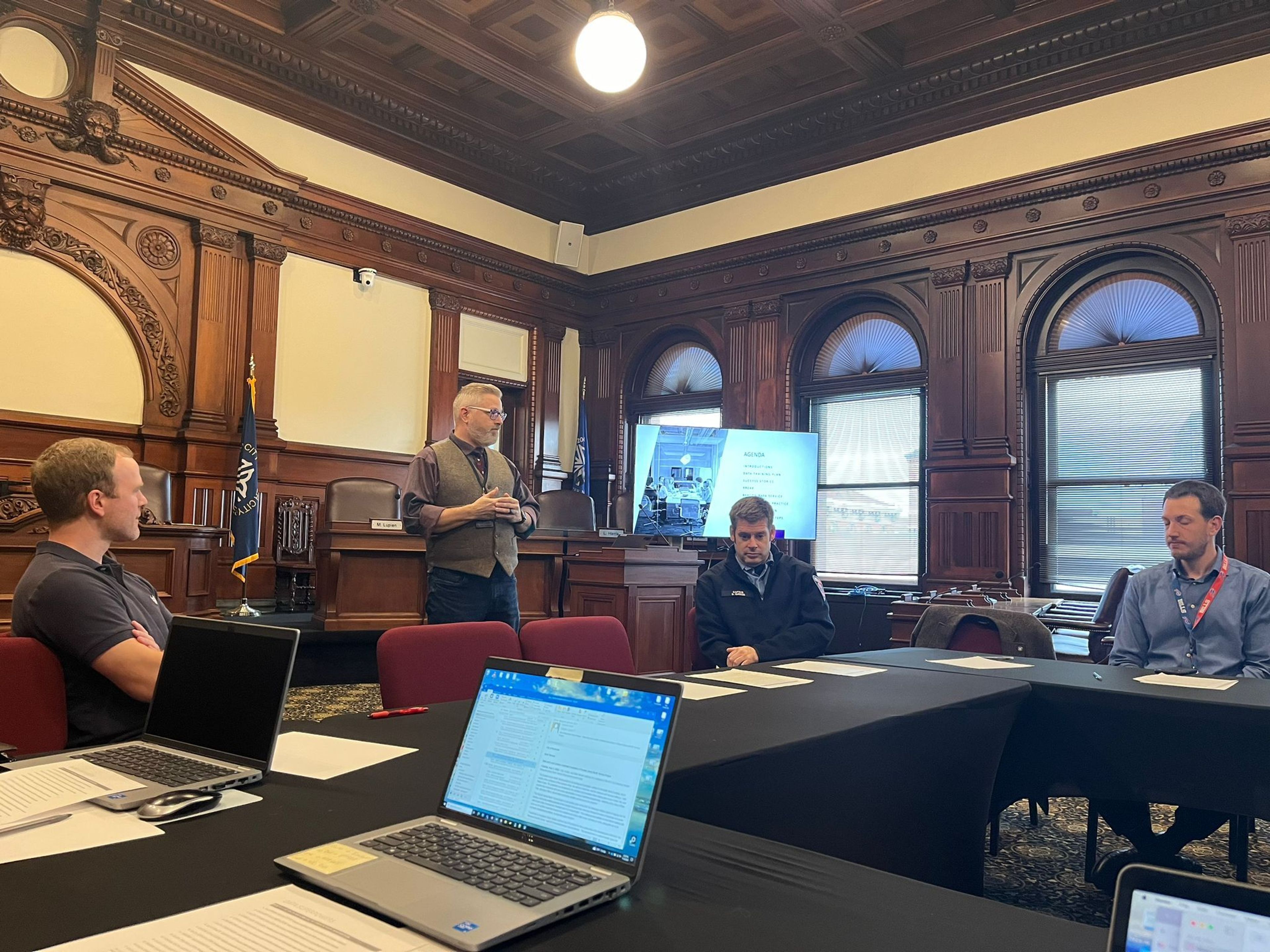
Rochester, NY - Small team, big impact
Many have already written pieces on how small, multidisciplinary, empowered teams are the basic unit of delivery for impact at scale in big organisations. That is, in fact, how most public sector digital transformation success stories begin.
In that sense, the city of Rochester, New York, is no exception: a small team having a big impact.
As part of the Bloomberg Philanthropies City Data Alliance, a program that provides multi-year operational and technical coaching to select mayors across the Americas and Caribbean, the city was able to achieve impact, not only through clear deliverables, but also through mindset shifts and cultural change. During this time, the suite of supports provided to the mayor and city through the Bloomberg Philanthropies City Data Alliance on how to bolster their use of data to assess needs, strengthen services, and codify policies enabled them to enshrine and spread results-based practices across their organization to enhance their government’s delivery and their residents’ outcomes.
This was Rochester’s recipe for success:
A strong digital foundation
When we first started working with the city, we were lucky to find that they had already achieved a lot of progress in digitalisation and data efforts. The IT team had worked to build strong knowledge and foundations in systems like GIS and the use of Cloud services.
Thanks to years of work by the IT team, the senior management team had a clear idea of the importance of data governance, data ethics and following good data practices. The collective technical expertise in the use of data was strong, despite the size of the team.
As a result of that hard work, the city already had an open data portal, they had set up a Data Governance Committee, they achieved What Works Cities Silver certification and had various good examples of data services that were being used at scale. An example of this is Plowtrax, a highly impactful resident-facing data service which allows people to find out when the snow will be ploughed in their street.
Committed leadership
The city leaders had a good understanding of the city’ priorities from the start. They did not hesitate when asked to suggest two main topics which could be addressed through our data as a service track. Clarity on strategic direction was important because it gave the team confidence that they would get support from leadership in this journey.
The right talent with a strong sense of purpose
In the first Data Community of Practice meeting, 20+ people attended. They were all either data practitioners or people interested in data and came from various departments throughout the city. Having people with the right skills across the organisation made it easier to set up a multidisciplinary team to work on the three outputs that we were set to deliver.
Yet it wasn’t only about the skills. In every meeting we could feel that city staff shared a strong sense of purpose: their commitment to improving the lives of citizens.
Understanding and utilising user centred design helped Rochester become focused on their citizens, but it was their shared purpose that propelled the momentum to make a real impact.
Abandoned housing is a big social problem in Rochester today. According to an interview with Mayor Evans, “dilapidated properties pose risks to the public health and welfare of neighbours, and they’re often linked to higher rates of crime.”

Having a clear purpose is what drove a team of 5 to 10 highly motivated individuals to meaningfully discuss how to best use their time and capabilities to impact the community.
Purpose also helped during the research phase when the whole team was committed to listening to potential users of the service in order to create a solution to add value to the Rochester community.
Purpose buys time when it feels like things are piling on and the team is cluttered with other tasks and responsibilities.
How we helped Rochester go further
To make the best use of the city talent, we helped them form a multidisciplinary team. This team was composed of both IT and data practitioners, subject matter experts not only from the Neighborhood and Business Department, and also leaders from the Rochester Police and Fire Departments. We made sure that within the team there was a good mix of technical ability, close proximity to decision makers, and subject matter expertise on abandoned housing.

We facilitated conversations to make sure the team stayed on track, and at the same time allowed for space to learn and share their own personal perspective and experience. The Rochester team recognised the need for an external partner to help them articulate their needs and conversations in a useful way.
Barbara Pierce, Director of Communications, City of Rochester summed it up as: “Public Digital took us through a deliberate process that we could adjust to and learn from. Perfectly paced (not too slow but not too fast). I am sure the team has so many useful takeaways that will stay with us and continue to impact and improve Rochester's data journey.”
We helped plan the research phase so they could hear from real users about their experiences. These conversations then became workshops where we helped the team get alignment on which problem to tackle, and how to do that in the most impactful way. As a result of that, the team had clarity on what they wanted to solve, had clear metrics that they could target and a roadmap for further iterations of the data service.
We prioritised closing the gap between the leadership and the delivery teams. Our aim was to make sure that the delivery team got sufficient exposure in the right decision-making forums. In order to achieve that, we worked on three outputs and helped the core team build close relationships to decision makers. Having people like the Director of Communications and the Mayor’s Chief of Staff very close to the delivery team was key throughout the programme.
Through various sessions, we helped leaders foster team empowerment. While senior management had clarity on what they wanted to achieve, the team had to feel empowered to come up with the ‘how’s’ and to design tests to validate hypotheses and build the service.
An indicator of team empowerment was when Mike, a tech expert, immediately jumped in to offer a week of his time to create a working prototype of what would later become the first version of the beacon data service. This really helped accelerate the team’s conversations and it would not have happened if top down leadership curtailed the freedom for individuals to use their initiative. Rochester allowed for individuals like Mike to give the best they could to solve a problem worth tackling.
As a result of going through the programme, Rochester has increased its confidence in data service delivery with human centred and agile methodology. They are close to publishing a first version of their abandoned housing data service, which will provide clear, real time data for better decision making.
They have also published a Data Service Standard which codifies good practices for delivering good data services, and they have a thriving data community of practice where they share all their data knowledge and challenges every two months.
The leadership team is now aligned on a strategy to make data-informed decisions on city initiatives.
But the best outcome is that they now have a team of individuals who can continue the work onwards and keep having more impact on residents’ quality of life.


Written by

Heidi Uchiyama
Director

